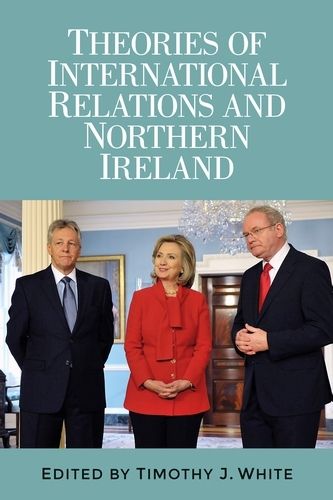Readings Newsletter
Become a Readings Member to make your shopping experience even easier.
Sign in or sign up for free!
You’re not far away from qualifying for FREE standard shipping within Australia
You’ve qualified for FREE standard shipping within Australia
The cart is loading…






This book uses the case of Northern Ireland to evaluate theoretical approaches in international relations. It investigates the process of negotiation that led to the signing of the Good Friday or Belfast Agreement and the continuing challenges to peace reconciliation in Northern Ireland. Incorporating the work of leading scholars, it explores a wide range of topics, including the function of deception in promoting peace, the question of partition and how it was reimagined by nationalists such as John Hume, and how the decommissioning process led to a role in internal policing for paramilitaries. The influence of outside actors - notably the United States and the European Union - is also considered, along with the involvement of the Catholic Church and the marginalization of women. This book will be important for academics interested in theories of international relations and to a wider public interested in understanding the Northern Ireland peace process. – .
$9.00 standard shipping within Australia
FREE standard shipping within Australia for orders over $100.00
Express & International shipping calculated at checkout
This book uses the case of Northern Ireland to evaluate theoretical approaches in international relations. It investigates the process of negotiation that led to the signing of the Good Friday or Belfast Agreement and the continuing challenges to peace reconciliation in Northern Ireland. Incorporating the work of leading scholars, it explores a wide range of topics, including the function of deception in promoting peace, the question of partition and how it was reimagined by nationalists such as John Hume, and how the decommissioning process led to a role in internal policing for paramilitaries. The influence of outside actors - notably the United States and the European Union - is also considered, along with the involvement of the Catholic Church and the marginalization of women. This book will be important for academics interested in theories of international relations and to a wider public interested in understanding the Northern Ireland peace process. – .